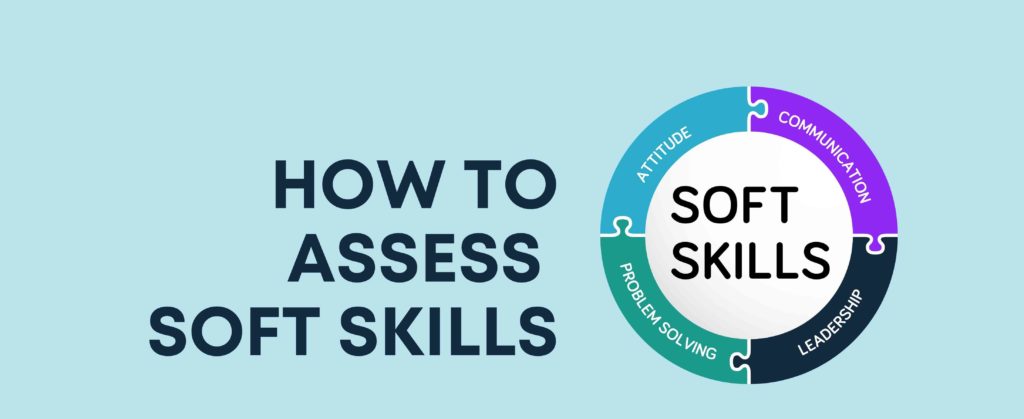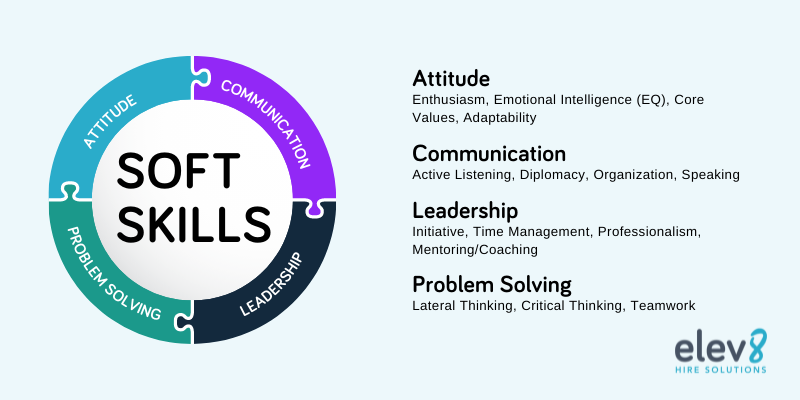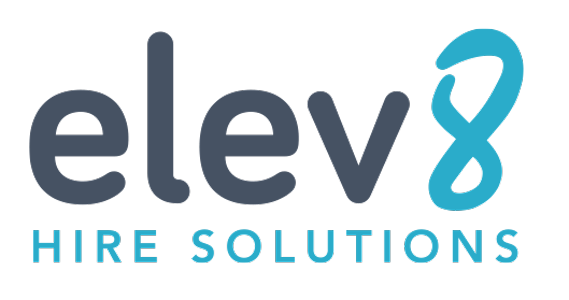
How to Assess Soft Skills
Interviewing for soft skills is critical to find a true fit for a candidate, yet according to LinkedIn, 60% of hiring managers say screening for soft skills is tough.
Hard skills are easier to assess—especially for technology workers where there is a plethora of skills assessment software that can be used to conduct code challenges.
However, soft skills define how a person will operate in your culture. Since candidates can’t be part of your culture in a bubble, it requires some creativity and effort to truly understand how a candidate will behave once they are part of your team.

5 Ways to Assess Soft Skills
While assessing soft skills should be integral to the interview dialogue, to begin hiring managers do not have to wait for the actual interview. This activity can be done in the screening phase, and on some level without direct participation of the candidate.
Force Rank Skills
Ahead of the interview, you can ask for the candidate or a peer to stack rank their impression of soft skills. While this will not give exact measurement of these skills, it will orient the interviewers to what perceived strengths and weaknesses are during the interview.
Online Tests
There are a variety of credible personality and attitude tests available online. These tests are excellent indicators of potential fit, and have been shown to increase productivity. However, they need to be tested—on your current team—to validate the results will work for your team.
Scenario Questions
Rather than asking candidates about their use of soft skills in situations at other employers, give them a more relevant situation at your company that requires soft skills and ask them to walk you through how they would solve it. Posing scenarios with the intent on identifying an omission of a soft skill is an excellent approach here to show real competency.
Assess Outside The Interview
Most people are on their best behavior in interviews. Asking others more involved in logistics for the interview can be effective to probe soft skills in their everyday life. Ask receptionists, drivers, and even other applicants to observe and report on your candidate’s soft skills. Make them play a few games of ping pong, or eat a meal in the cantina. Richard Branson even went so far as to disguise himself as an elderly cab driver to pick up candidates and see how they behaved. Spoiler: None of them got the job.
Practical Projects
By far the best way to assess skills is to observe the candidate’s behavior in a real-world scenario. This means creating a project and having them work with the actual team they’d be working with if they were hired. The hard part is making sure this project is useful to the team. And be sure to compensate the candidate adequately for the work performed.
Interview Questions To Assess Soft Skills
Soft skill questions will differ based on your particular company’s culture and the job requirements at hand. For instance, a product marketer will require very good communication skills, while a sysadmin may not need as many communication skills in their daily job.
For this reason it is critical that you do an internal assessment of what soft skills are needed to be successful at your company, and in the specific job.
Attitude
Enthusiasm easily makes a candidate a standout in the interview process. Arriving early, actively asking questions, and intently listening are all strong indicators that a candidate has an affinity for the role, and wants to be successful.
COMMON QUESTIONS
- Tell me about yourself.
- Tell me about a time when you wanted to give up but chose not to.
- How do you react when asked to do something beyond your capabilities?
- Tell me about a time when you were asked to do something you had never done before. How did you react? What did you learn?
- Give me an example of when you had to work with someone who was difficult to get along with. How did you handle interactions with that person?
- When were you last energized by a project?
- Describe the perfect work environment for you.
Communication
Communication skills are important in almost every role, and can be assessed throughout the interview. Almost every question is a communication question. Look for active listening with well prepared responses. Competence for two-way communication is paramount to collaboration, leadership and teamwork. For a next level assessment, look for empathy, persuasiveness, and overall confidence.
COMMON QUESTIONS
- What is your communication style?
- What do you do to build rapport with others?
- Are you stronger at written or verbal communication?
- Tell me about a time you gave a presentation at work.
- Do you proofread and edit your memos and emails before you send them out?
Leadership
Almost anyone can be trained to become a manager. True leaders are harder to come by, and important to recognize. Leaders earn respect, drive teams with their own energy and attitude as an example, and shine when they don’t yet have answers to hard questions or new environments. They look beyond themselves and help their teams stay motivated and adapt to change, while keeping focus on what’s important.
COMMON QUESTIONS
- Tell me how you plan to earn the respect of the team.
- Recall a time when your manager was unavailable when a problem arose. How did you handle the situation? With whom did you consult?
- Tell me about a time when you had to juggle several projects at the same time. How did you organize your time? What was the result?
- Tell me about the last time something significant didn’t go according to plan at work. What was your role? What was the outcome?
- Tell me about the biggest risk you’ve taken or considered taking. How did you go about mitigating that risk?
- How or when would you tell your team news of a merger / acquisition / product direction change?
Problem Solving
There are three main components to problem solving: identify, analyze and implement. To assess problem solving skills, look to find how easily the applicant took the initiative, how thoughtfully they considered actions and consequences, and how willing they were to ask questions and work as a team. Importantly, look to understand their emotions and how they adapted to stress.
COMMON QUESTIONS
- What makes you a great problem solver?
- Do you prefer to attempt to solve the problem on your own before asking for any help?
- Have you ever missed a deadline? How did you handle the solution?
- Tell me about a time when you realized a colleague had made a mistake. How did you deal with this? What was the outcome?
- Tell me about the biggest work-related problem you have faced. How did you deal with it?
- Tell me about a time where you have been caught off-guard by a problem that you had not foreseen? What happened?
- Tell me about a time when you became aware of a potential problem and resolved it before it became an issue.
- Tell me about a personal weakness that you had to overcome to improve your performance at work. How did you do it?
- Tell me about a situation that you would have handled differently if given another chance.
